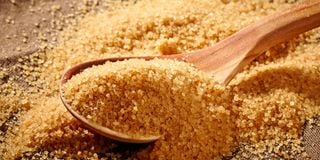Premium
Prices of sugar fall slightly on growing imports

Price of sugar has been on a steady decline from a peak of Sh224 per kilogramme in August.
Sugar prices eased by about Sh5 per kilogramme to hit the lowest level in five months in November last year mainly driven by exports.
Data from the Sugar Directorate shows consumers paid Sh213 per kilogramme on average during the month compared to Sh218 in October.
The price of the sweetener has been on a steady decline from a peak of Sh224 per kilogramme in August, with the price currently below Sh200 in several supermarkets for some brands.
“Retail sugar prices in November averaged Sh213 per kilo, a drop from Sh218 in October,” said the directorate.
“The wholesale prices in November dropped to an average of Sh8,867 per 50kg bag, down three per cent from Sh9,145/50kg bag in October,” it said.
The price drop followed a significant jump in sugar imports, which increased by 51.3 per cent to 90,759 tonnes in November, which is the highest since March.
As a result, the total quantity of sugar supply in the market including that produced locally hit 113,495 tonnes, also the highest since March and an increase of 37 per cent from October.
The drop in prices comes as a slight relief for consumers who have been paying steeply for the commodity.
Sugar prices have risen by the fastest rate of any food product tracked for inflation by the Kenya National Bureau of Statistics (KNBS) over the past year.
The rally was driven by the temporary closure of sugar millers for a period of four months starting July to allow sugarcane to mature.
The Agriculture and Food Authority (AFA) made the decision after sugar factories were hit by a raw material dearth, forcing some to resort to crushing immature crop while fueling poaching.





